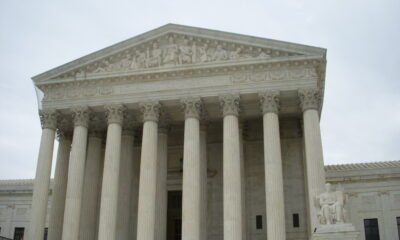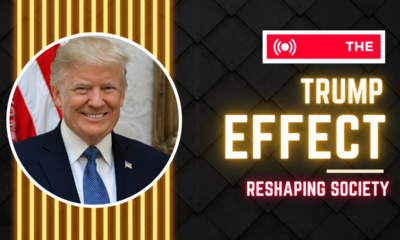Media
Social media meet their match
Social media abused the wrong user, i.e. the President. Now he is acting to clarify a provision that once acted to stop pornography and now stifles dissent.

Yesterday (28 May 2020) the President finally took action that in fact he surely planned for a long time. By Executive Order, he set a policy on the conduct of social media platforms. To put it bluntly, if social media want the government to treat them as platforms, they should act as such. As CNAV and any conservative knows, they have been acting as publishers instead, deciding whom to let communicate, and whom not. Under this new Executive Order, that double standard of conduct and legal treatment will stop.
The sins of social media (and Web hosts and search engines)
Regular readers of CNAV will recall that on 26 August 2018, your editor recorded and issued this Declaration of Cybernetic Independence.
CNAV acted after all four major social media companies abruptly denied a platform to InfoWars, home of Alex Jones.
Abuses and usurpations by social media against their users
The Declaration covers many acts of direct censorship, invasions of privacy, and open warfare against users. The following acts specific to social media platforms concern us here:
- Social-network moderators have suspended and revoked accounts for any cause or no cause. They cite “Terms of Service” that appear to ask for politeness. But those same moderators allow leftist account holders a pass for demonstrably rude behavior. Behavior that provides a pretext for kicking off a conservative, passes as acceptable in a leftist.
…
- Social-network chief administrators have declared us out of their protection and are now prosecuting open war against us. Witnesses report sudden decrease in followership, or direct termination of their own accounts.
- Those same social-network moderators are now implementing a system to rate the “trustworthiness” of account holders. They refuse to reveal their criteria. Yet they have announced plans to discipline users according to this new rating.
The abuses did not stop
That last part, about a “trustworthiness” rating, applies specifically to Facebook. Bear this in mind; this has a sequel that broke this last week.
The various social media platforms (and Web hosts, and search engines) did not change their behavior in any way. In fact they behaved worse. Tony Heller, the most prominent “climate skeptic” on the Internet, has his own tales:
The Gab case
But in the most memorable case, a group of engineers founded a new social media platform, which they called Gab. Their original Web host canceled their service. They used as a pretext the presence of “NSFW” photographs in certain users’ posts. In fact, Gab never carried any photograph or video worse than some that Facebook and Twitter have carried. Every astute observer knew the real reason. Gab would not censor its users, as Twitter, Facebook, Google (through YouTube) and Spotify did.
Gab went through at least two other hosts until finally another Web hosting firm, Epik, agreed to host them. Epik declared boldly that they would host anyone, regardless of politics, and accused everyone else in the industry of cowardice. Perhaps they did not do so in so many words. But, considering where the impetus came from to knock Gab off the Internet, cowardice applies to the actions of those other hosts. And again, every astute observer knew it.
The Tech Bias Reporting Tool
Then throughout May of 2019, President Trump took a survey of social media users—the Tech Bias Reporting Tool. He invited them to share with the White House complaints they had of “online censorship.” The White House received more than sixteen thousand complaints of total or partial censorship by social media administrators and moderators.
This forms the background of the President’s newest Executive Order. In her reporting on the signing of the EO, Makena Kelly at The Verge made much of the President’s latest dispute with Twitter. Ms. Kelly covered that dispute.
Social media calls the President a liar on universal absentee ballot fraud
It began after the President pointed out the great flaw in the latest “electoral reform” by Governor Gavin Newsom (D-Calif.) and Rep. Nancy Pelosi (D-Calif.- 8th). That reform is universal absentee balloting, that the news wags commonly call “vote by mail.” After Governor Newsom announced plans to send absentee ballot kits to every registered voter, the President said this:
The straight dope on universal absentee balloting
Note the exclamatory tag on that thread, reading “Get the facts about mail-in ballots.” The link resolves here. Among the claims Twitter made and echoed was that “only registered voters will receive the ballots.” They didn’t mention that as many as three million illegal aliens voted in the Election of 2016, which three million constituted the margin of “popular vote victory” by Hillary R. Clinton.
Five States conduct all their elections by mail. They are Colorado, Hawaii, Oregon, Utah, and Washington. In those States, every registered voter receives an absentee ballot kit. No one votes in person. Of the five states, Republicans habitually carry only one: Utah. And no one has ever investigated, as thoroughly as one should, how easy universal absentee balloting might be to rig. In twenty-nine other States, and the District of Columbia, voters may request an absentee ballot for any reason or no reason.
The West Virginia AG vindicates the President
The experience with universal and/or no-reason absentee balloting does not inspire confidence in the security of the election. State Divisions of Elections have notoriously refused to clear their voter rolls of the dead and the move-outs. So in theory one could move among various States, carefully establish forwarding addresses, and vote by mail in each. And people do it, too.
And indeed, on the very day Twitter took issue with the President’s remarks, the West Virginia Attorney General charged a postal worker with “manipulation of absentee voter requests.”
This incident prompted the President to act. But Ms. Kelly at The Verge left the impression that the President simply got angry and “flew off the handle.” In fact, as your editor hopes he has shown, the President has known about the problem for a long time.
A social media alternative says, “Come join us!”
The worthies at Gab reached out by e-mail to every registered user, of which your editor is one. They sought to encourage the President to use his account at Gab, discontinue his Twitter account, and encourage all his followers so to act. One can scarcely blame them for seizing the obvious marketing opportunity. CNAV exhorted, and exhorts, its readers to take that very course.
Then came the Executive Order itself.
Background of the Social Media Executive Order
The Executive Order centers on Section 230 of the Communications Decency Act (Title 47, United States Code, Section 230). That Section lets social media platforms block and screen “offensive material” on their platforms. It reads in relevant part:
From Section 230 paragraph c
(c) Protection for “Good Samaritan” blocking and screening of offensive material
(1) Treatment of publisher or speaker
No provider or user of an interactive computer service shall be treated as the publisher or speaker of any information provided by another information content provider.
(2) Civil liability: No provider or user of an interactive computer service shall be held liable on account of—
(A) any action voluntarily taken in good faith to restrict access to or availability of material that the provider or user considers to be obscene, lewd, lascivious, filthy, excessively violent, harassing, or otherwise objectionable, whether or not such material is constitutionally protected; or
(B) any action taken to enable or make available to information content providers or others the technical means to restrict access to material described in paragraph (1).[1]
The original intent of Section 230(c)
The stumbling block in this text is: otherwise objectionable. The title of the overall law is “Communications Decency Act.” This, and the adjectives obscene, lewd, lascivious, filthy, excessively violent, and harassing, provide context. As the President notes, this law exists to let social media platforms block and screen, among other things:
- Pornographic material, including “revenge pornography” against a member of a user’s community, online or off-, and
- Cyberbullying.
But in the hands of the Obama left…
The authors of this law never intended to block political speech. But the man who held the office of President 2009-2017, Barack Hussein Obama II, set a new standard of “offense.” Or at least, he led the way for such standard setting. Under it, anything that questions the notion of “common good” as Karl Marx might have defined it, gives actionable offense. Furthermore, anything that questions the authenticity of the reason anyone might give for:
- abortion on demand,
- the sharing of bed as well as board by members of the same gender,
- surgical and/or hormonal gender reassignment,
- believing that the continued use of “fossil fuels” will cook the planet and kill all life thereon, or
- taxing away an amount of wealth anyone might possess, merely because someone else considers his wealth excessive,
gives actionable offense.
Legislatures urge social media people to violate the Constitution and law
Indeed we see legislators openly presuming to order social media administrators and moderators to block, censor, and otherwise sanction those who express ideas contrary to their own.
In this context, the President specifically accuses that social media administrators and moderators:
engage in deceptive or pretextual actions (often contrary to their stated terms of service) to stifle viewpoints with which they disagree.
The CNAV Declaration of Cybernetic Independence points out this very behavior. Terms of Service now mean whatever the social media admins and mods say they mean, any time they say it.
What the Social Media Executive Order actually does
So the President’s Executive Order will take these and other concrete steps:
- Ask the Federal Communications Commission (FCC) to make regulations to clarify Section 230(c) and how it applies. This will happen sixty days from now through a petition for rulemaking.
- Review its policies for advertising on social media platforms that cross the line.
- Send those 16,000 Tech Bias Reporting Tool complains to the Department of Justice and the Federal Trade Commission for action.
- Draft Acts of Congress to provide further protections for social media users.
- Set up a working group to advise State Attorneys General and legislatures on how to act in this regard.
Social media giants squeal!
Twitter and Facebook, predictably, squealed like the stuck pigs that they have long since become. Twitter said this:
“Attempts to unilaterally erode…Section 230”? Hardly. Petitions for rulemaking and drafting of model legislation do not constitute unilateral action. And at least one other Twitter user pointed out the obvious: that “you’re either a platform or a publisher,” not both at once.
User JohnnyWhig also sharply reminded Twitter that telephone companies do not screen calls. Neither do Voice over Internet Protocol providers, nor “cable TV” providers who also provide direct telephony. The only kind of call that receives any attention, is a malicious, threatening, or abusive call. Different States make that kind of thing a misdemeanor that rates fine, imprisonment, or both. Nothing like that is at issue in this context—as Twitter administration ought to know.
Twitter doubles down on its sin
Furthermore, Twitter did it again.
The George Floyd case and riots
Overnight, the city of Minneapolis, Minnesota, quite simply, started to go up in flames. At issue is an excessive use of force by four police officers, that caused the death of a suspect. So riots have broken out all over Minneapolis, with, among other incidents:
- A major store chain (Target) closing all its stores in the city “until further notice,” and
- The breach and later evacuation of a police station.
In response, the governor has called out the National Guard. The President, pursuant to Article IV Section 4 of the Constitution, pledged his own support—military if necessary. And then he said this:
These THUGS are dishonoring the memory of George Floyd [the dead suspect], and I won’t let that happen. Just spoke to Governor Tim Walz and told him the Military is with him all the way. Any difficulty and we will assume control. But, when the looting starts, the shooting starts. Thank you!
“Glorifying violence”? Is Twitter kidding?
And Twitter chose to mask the tweet and cite it for “glorifying violence.” At the same time they said they made a “public interest” exception and let the tweet stand. CNAV encourages its readers to read the tweet text and judge for themselves whether the President “glorified violence.”
Twitter management would appear to want to provoke the President to take unilateral action for real. Indeed, they have made the President so angry that he now calls for outright repeal of Section 230.
To clarify: the Executive Order does not say that the United States will not execute Section 230 any longer. Congress would have to act. But now Twitter has made this a campaign issue.
Facebook’s doublespeak
Facebook seems to want to have it both ways. Spokeswoman Liz Bourgeois said Facebook will
protect our community from harmful content, including content designed to stop voters from exercising their right to vote.
At the same time, Mark Zuckerberg, its head, said social media platforms should not be “arbiters of truth.”
A good-faith social media actor expresses misgivings
Gab also decried the EO.
Section 230 protects American companies from foreign authorities with far less liberal speech regimes than our own. Using executive power to water down Section 230 is a horrible idea and will inevitably harm alternative technology startups like Gab in the long run.
In fairness, Gab does not approve of the stifling of content with which social media admins and mods disagree. Indeed, Gab exists to shelter people from that kind of thing. The administration of Gab would prefer that everyone decamp from Facebook and Twitter and use their network instead. They also called for an investigation of social media networks and search engines for anticompetitive practice, under antitrust law.
Yet they have misplaced their concern. Social media admins and mods today treat political speech with which they disagree as they treat pornography and cyberbullying. When they do that, they act in bad faith. That, therefore, places, and ought to place, them out of the protection of Section 230.
And what should people who must use social media in employment do?
Furthermore, some people must use Facebook as a condition of employment, to facilitate supervisor-employee communication. What happens to such an employee when Facebook sends her to “jail”? Possibly her employer terminates her, in the fear that she is engaging in pornography or cyberbullying. More probably her supervisor reacts in understandable annoyance at having to reach her, and her alone, via a channel other than Facebook.
Why can’t you behave yourself on Facebook, just like everybody else?
A supervisor shouldn’t have to ask, nor the employee answer. If an employee passed a background check, that ought to suffice, for Facebook as well as the employer. But in a world where the desire for a collectivistic oligarchy ensnares even “the average man and woman on the street,” that no longer suffices. And that makes a mockery of freedom of thought, and absolutely destroys the rule of law.
Brighteon says, “Go for it!”
In contrast to Gab, the administration of Brighteon.com applauds the new EO. Furthermore, they list ten specific action items to further its goals. This includes:
- Decamping from traditional social media outlets, and furthermore,
- Submitting more complaints against administrative and moderational bias, when, as and if the President establishes more on-line reporting tools. The EO hints at this.
For all these reasons, CNAV salutes President Trump for ordering relevant authorities to clarify a privilege social media platforms have long abused. CNAV further urges the head of Gab to calm down. He will not see a full repeal of Section 230 any time soon. (Although Senator Josh Hawley, R-Mo., and Rep. Matt Goetz, R-Fla., are already at work on a legislative remedy.)
In the meantime, social media users will at last get the protection they reasonably expected when they signed on.
Alternative social media
The time might indeed have come for users of traditional social media to decamp from them and use a service like Gab. CNAV takes pride—and, to clarify, no remuneration—to list the following other alternatives:
Joining battle
Social media just met its match. To put the matter bluntly, Twitter just crossed paths with the wrong user. The head of Facebook recognizes this, even if his spokeswoman does not. But this same Facebook has its “trustworthiness” ratings (see above) and its new twenty-member “court of user conduct” with an alleged international membership. Were Facebook serious about “not being arbiters of truth” they would disband that Star Chamber at once.
But they’re not and they haven’t. Hence, measures like that which the President is now taking.
The President has, in short, joined the battle the social media admins and mods provoked. And they will regret it.
(Disclaimer: Howard Shore, original composer of the above music, does not endorse CNAV in any way.)
About the image
-

 Executive3 days ago
Executive3 days agoThe Hunters Have Now Become The Hunted: Their Cruelties Are Swelling The Ranks Of The People Worldwide!
-

 Constitution3 days ago
Constitution3 days agoCHAPTER 9: Norman Dodd Interview Space Is No Longer the Final Frontier––Reality Is [upcoming release April 2024]
-
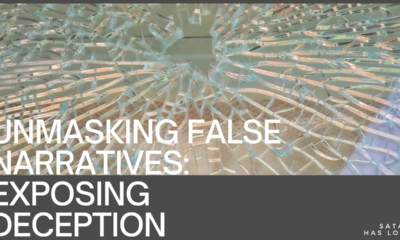
 Clergy2 days ago
Clergy2 days agoWhy Do The American People Let The Corrupt Media & Politicians Set The Propaganda Narrative – Speak On Their Behalf
-
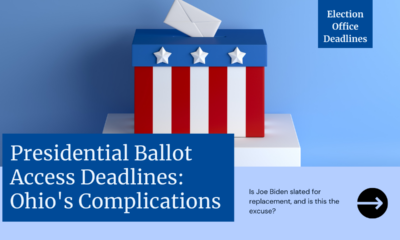
 Executive5 days ago
Executive5 days agoBiden ballot woes continue
-

 Entertainment Today3 days ago
Entertainment Today3 days agoCivil War (2024) – an incomplete prediction
-
![CHAPTER 10: Objective Reality Is Required for a Free Society Space Is No Longer the Final Frontier—Reality Is [upcoming release May 2024]](https://cnav.news/wp-content/uploads/2024/04/Objective-reality-v-acceptance-400x240.png)
![CHAPTER 10: Objective Reality Is Required for a Free Society Space Is No Longer the Final Frontier—Reality Is [upcoming release May 2024]](https://cnav.news/wp-content/uploads/2024/04/Objective-reality-v-acceptance-80x80.png) Education2 days ago
Education2 days agoCHAPTER 10: Objective Reality Is Required for a Free Society Space Is No Longer the Final Frontier—Reality Is [upcoming release May 2024]
-
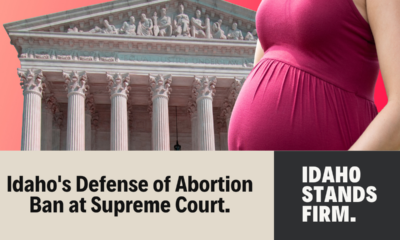
 Human Interest2 days ago
Human Interest2 days agoIdaho prepares to defend its abortion ban
-

 Executive4 days ago
Executive4 days agoNational Security Implications of Baltimore Bridge Catastrophe





